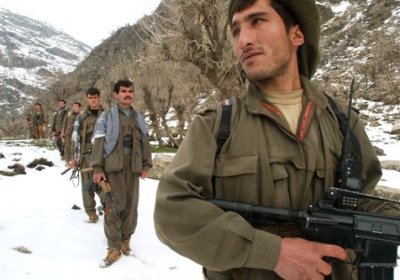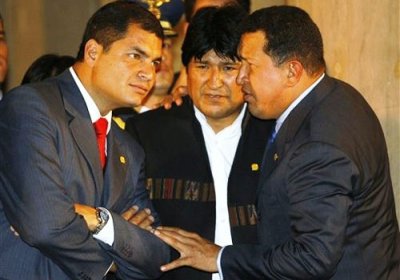In a July 7, press conference in Dili, Luta Hamutuk a prominent civil society activist group in Timor Leste condemned the new Australian policy on refugees as "racist".
843
Socialist Alliance Senate candidate for the upcoming federal election, Sharon Firebrace, has dismissed Labor’s proposal, to send asylum seekers to an off-shore processing centre in Dili, as “another chapter in our country’s racist shame".
In a July 6 speech to the Lowy Institute Gillard announced that her government was pursuing a regional agreement for offshore processing of "unauthorised arrivals".
On July 1, striking workers at a Japanese-owned electronics factory in the Chinese city of Tianjin stalled production for a third day and vowed to continue their fight until bosses agreed to better pay and conditions, the Morning Star said that day. It is the latest in a spate of work stoppages to hit foreign transnationals operating in China.
Workers have hung large banners outside the factory gate reading: “Human traffickers are not welcome”, “We want a pay rise” and “We want fair treatment”.
A nearly two-month-long student strike that shut down all 11 campuses of the University of Puerto Rico (UPR) ended in a decisive victory for the students.
The students’ inspiring unity, determination and creativity serve as a magnificent example of how to fight and win in the face of neoliberal attempts to balance budgets in this era of global austerity.
The strike began April 21 as a 48-hour stoppage at UPR’s main campus of Rio Piedras to protest US$100 million in budget cuts, a sharp increase in student fees and the administration’s unwillingness to negotiate with student activists.
Seven oxygen machines donated to the Palestinian Authority by a Norwegian development agency were seized by Israeli officials, Ma’an news agency said on June 25. The Ramallah-based PA health ministry said the machines were en route to hospitals in Gaza and the West Bank.
The ministry said in a June 24 statement that Israeli officials confiscated the machines, claiming the generators attached “came under the category of possible use for non-medical purposes” if they were delivered to Gaza.
In 2006, the Victorian government committed to introducing a “landmark” Climate Change Bill. At this time, there was growing momentum around the world for legislation that would cut greenhouse gas emissions. This momentum was largely in response to the glacial pace of the international climate change negotiations.
In her opening remarks as Australia’s new prime minister, Julia Gillard said she believed climate change was real and was caused by human activity. What she left unsaid was that she doesn’t believe in doing much to stop it.
Former PM Kevin Rudd’s rapid nosedive in the opinion polls coincided with Labor’s April decision to dump its proposed emissions trading scheme until 2013.
The scheme itself was radically flawed, but many people still associated it with action on climate change. More than with any other issue, Labor was punished for its perceived backflip on climate.
Thirty one Rohingya refugees in a detention centre in Darwin ended their 12-day hunger strike on June 25. They were protesting against the Australian government’s delay in processing their asylum claims, an average of nine months after their boats’ interception.
On June 1, the Kurdish Workers Party (PKK) announced an end to its 13-month unilateral ceasefire. Since 1984, the PKK has waged an armed struggle against the Turkish state for Kurdish self-determination.
A day earlier, imprisoned PKK leader Abdullah Ocalan announced that he was withdrawing from negotiations. He cited a disconnect between the Turkish government’s promised reforms and continued violent repression of Turkey’s Kurdish population.
The Bolivarian Alliance for the Peoples of Our America (ALBA) released a statement on June 28 reaffirming its commitment to the Honduran people’s struggle for a return to democracy one year after the coup that overthrew president Manuel Zelaya.
ALBA is an anti-imperialist alliance founded in 2004 by Cuba and Venezuela. Its members include Bolivia, Ecuador, Nicaragua, Dominica, Saint Vincent and the Grenadines, and Antigua and Barbuda.
Under Zelaya, Honduras joined ALBA, which suspended Honduras’s membership after the coup. The regime has since withdrawn from ALBA.
At dawn one year ago, on June 28, soldiers invaded the home of Honduran president Manuel Zelaya and flew him to Costa Rica.
It was a frightening throwback to the days when military men, backed by a local oligarchy and often the United States, could overturn the results of democratic elections.
It would also turn out to be a pivotal moment for relations between the US and Latin America. A new generation of left-of-centre governments in Argentina, Bolivia, Brazil, Chile, Ecuador, Paraguay, Uruguay, and Venezuela were all hoping for a new relationship with Washington.
- Page 1
- Next page









